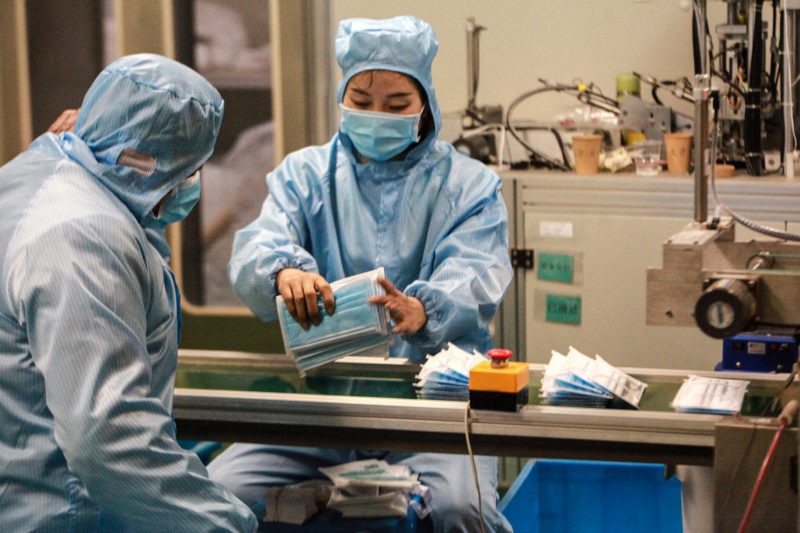China stocks brace for virus hit as markets open after long break
There are concerns about the impact of the coronavirus outbreak on the Chinese economy (STR)
Shanghai (AFP) – China’s stock markets are expected to sink Monday when they re-open after an extended holiday break due to worries over the impact the coronavirus will have on the economy.
Markets in the world’s second-biggest economy closed on January 24 for the annual Lunar New Year holiday, but since then the viral epidemic that started in Wuhan has spread around the world, dragging down stocks and threatening the global supply chain.
The reaction to the growing epidemic is not expected to be pretty when markets open in Shanghai on Monday at 0930 am (0130 GMT).
But, as analysts predicted, the government is already marshalling forces to contain the economic fallout.
China’s central bank said Sunday it would pump 1.2 trillion yuan ($173 billion) into the economy as it anticipates the fallout from the virus.
The People’s Bank of China (PBOC) said in a statement it would launch the reverse repurchase operation on Monday to maintain “reasonable and abundant liquidity” in the banking system, as well as a stable currency market, during the epidemic.
The bank also announced a day earlier it would step up monetary and credit support for enterprises helping the fight against the virus, such as medical companies.
Still, market watchers will watch Monday’s opening with bated breath.
“Investors will release their emotions at first and then make further decisions based on the epidemic situation and the potential stimulus measures rolled out by the government,” said Zhang Qi, an analyst with Haitong Securities.
“Whether the spread of the epidemic is effectively contained, and how much of a toll it takes on the economy are stressful for investors.”
Travel, tourism and hospitality shares may take the brunt of selling after China curbed domestic travel to slow the spread of the virus.
A growing list of foreign countries and airlines have also halted or reduced travel links with China.
Healthcare stocks, however, may see gains as Chinese stock up on masks and other medical supplies — and hope of potential future vaccine sales.
Individual Chinese stocks are limited to a 10 percent daily move in either direction, after which trading in those shares is suspended.
– ‘Large’ economic impact –
China’s economy is expected to take a clear hit from the crisis, which has brought industrial regions grinding to a halt.
The financial centre of Shanghai — and key manufacturing provinces in the south and east — are among regions that have ordered business closures for at least another week.
Many foreign companies have also temporarily halted operations in China.
“The near-term impact on Chinese GDP growth is likely to be large,” Oxford Economics said in a research note.
“Considering the affected areas account for just over 50 percent of total Chinese output, we think this could lead China’s annual GDP growth to slow to just four percent in Q1,” it added — down from a previous forecast of six percent growth.
Volume may be affected by the business closures, but China’s central government has already said banks must open on Monday.
It is not clear how many brokerages will operate at full capacity on Monday.
Markets had been scheduled to re-open on Friday after the week-long Lunar New Year holiday, but that was extended by the government to buy time in the fight against the virus.
“The market is bracing for the bearish impact,” Mingze Wu, a trader at INTL FCStone in Singapore, told Bloomberg News.
“I’m looking at one-sided bearish movement on Monday, and potentially for the foreseeable future until the situation improves.”
Disclaimer: Validity of the above story is for 7 Days from original date of publishing. Source: AFP.


